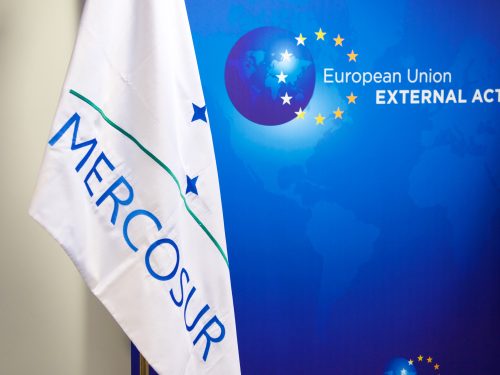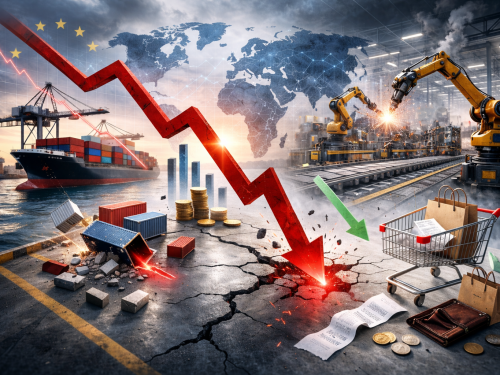News
Share on
"During this period we have seen evidence that the system on which globalisation and the international community were based had obvious limitations. Energy dependency is an example, the issue of national security was underestimated by us and by the whole of Europe. But also the lack of raw materials, the shortage of microchips that brought industries to a halt'. To the deepening of these growth-determining issues, Riccardo Di Stefano, President of the Young Entrepreneurs of Confindustriahas chosen to dedicate the Rapallo conference that opens tomorrow entitled 'PaesEuropa. Time for a new globalisation'.
"The EU," said Di Stefano in an interview with Sole24Ore- remains our common home. Our well-being, our growth are linked to the fate of the EU, which must be strengthened: we need a greater European identity, in the context of a defence and indeed a strengthening of multilateral relations. A commitment by Europe, therefore, with Italy playing a leading role. We need a new globalisation, made up of stronger value chains with high added value, structured in such a way as to give priority to security of supply over economic convenience. While respecting democracy and the rules of the free market'.
"At this stage the confrontation with the government must be further consolidated, in a constructive way," Di Stefano said, announcing the presence of party secretaries and ministers. "The economic situation is very difficult: a pandemic that is not yet over, the staggering rise in the cost of energy and raw materials, inflation that has risen as a result, the increased public debt. Important decisions are needed and it is imperative to launch reforms, linked to the implementation of the NRP and beyond. The parties must be reminded of the urgency of the economy, to take decisions. It is necessary to think about the future of the country without letting electoral deadlines dictate the agenda. Unfortunately, the signs of a slowdown in the reform drive are already there, we are seeing them. In 2023 we will have political elections in Italy, in 2024 the European Parliament will be renewed. These are two decisive deadlines, for us and for Europe. After this phase we will have a political government: to politicians we therefore turn to present demands on energy, labour and electoral law, to point out what businesses need in order to grow, compete and create jobs. We must bear in mind that industry is the engine of development. It was seen very clearly in the pandemic: if the country held up it was thanks to its manufacturing'.
The Vice President of Confindustria relaunches some of the priority actions: 'The most urgent one, which we Giovani are asking for in full agreement with the national Confindustria, is the cut in the tax wedge. It is expensive, yes, we have estimated 16 billion. But it would be a measure with both cyclical and structural effects, with our proposal workers would find an extra month's pay in their pockets every year and this would boost consumption. This is quite different from one-off bonuses, the effects of which cannot actually be seen. And also to the Irpef reform passed in the past budget law, a bland cut with little effect'. And on the subject of energy: 'Put a cap on the price of gas, Spain has done it, we need to push in Europe. A more effective decision than taxing companies' extra profits'. Lastly, to stimulate new entrepreneurship, according to Di Stefano, "We need to create an ecosystem with policies in favour of start-ups and scale-ups, through public-private partnerships between schools, research and business, and a streamlining of start-up procedures for new companies that are often too complex and a brake on new ideas. And we will relaunch in Rapallo the proposal already presented in Capri: a 'youth quota' reserved for the under-40s on boards of directors. It worked for gender equality for women, let's do it for young people too'.




